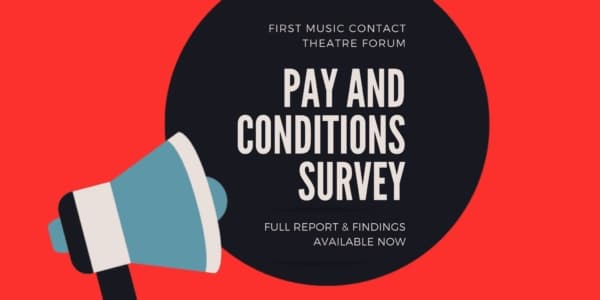A Brexit Budget
It was a predictably prudent Budget, focused on mitigating the impact of Brexit. Given the enormous impact of a disorderly Brexit on our economic, political and cultural future, critical comments on standstill or small Budget increases run the risk of being heard as curmudgeonly and that sector being selfish. Despite that risk, in a time of fundamental change in our society, there’s a real responsibility to set out the political value of our contribution in order to protect current allocations and positively influence future ones.
Proceed with caution
We were primed to expect and accept a cautious Budget. And that’s what Minister Donohoe delivered.
And the Department of Culture, Heritage and the Gaeltacht’s press release proceeded cautiously too. It acknowledged an overall increase of 2%, from €189m to almost €193m (comprised of €153m in current expenditure and €39.7m in capital investment).The allocations of most interest to our members were set out in some detail by Minister Madigan: Arts Council funding for 2020 is up €5m to over €80m. This includes €1.25m in additional funding to enhance the work of the Arts Council to support performing artists, arts festivals, street arts, family events etc. This funding also includes €3.75m reallocated from within the Department’s existing Vote which will strengthen the breadth and reach of the Arts Council’s role particularly in relation to the traditional arts, Culture Night and Creative Schools.
This strings-attached allocation suggests that the Arts Council probably has limited scope to increase their funding to artists to develop, make and tour work and to arts centres to increase their production capacity in the year ahead. Twelve years later, the 2020 allocation of just over €80 million still leaves the Arts Council some way off its 2008 level of €84 million and lagging behind the immediately-available Brexit measures of €85 million for beef farmers and €6 million for livestock and the mushroom sectors announced yesterday afternoon.
Other beneficiaries of the Department’s overall allocation included an additional €1.1m in capital funding for the Galway 2020 European Capital of Culture, an additional €900k for the Decade of Centenaries 2020 Programme, €1m for the transfer of the National Symphony Orchestra to the remit of the National Concert Hall, €250k for the amateur theatre sector across Ireland. Funding for significant ongoing Departmental programmes including Creative Ireland, Culture Ireland and the Cultural Institutions will continue. Minister Madigan added: “This additional funding for our arts and culture, at a time of prudent budgetary management reflects the Government’s commitment to supporting Irish arts and artists. The Per Cent for Arts Scheme and the extension of the Social Welfare Scheme for Self Employed Artists in conjunction with the Department of Employment Affairs and Social Protection announced earlier is further proof of our commitment.”
Prudent budgetary management, various additional allocations and regularisation of a social welfare scheme are very welcome. However, they don’t add up to sustained, strategic support and funding for artists to make work and sustain careers in the performing arts.
Investment in artists, not just infrastructure
The Department highlights the €460 million being set aside for the renovation of the country’s arts and culture buildings culture investment programme as the cornerstone of Project Ireland 2040. Global Ireland 2025 is a vision for Ireland on the world stage. To promote Irish culture and heritage abroad, five high profile artists were appointed Cultural Ambassadors and arts and cultural centres in New York, Paris and London are being co-funded. To achieve the aim of promoting Irish art and culture internationally, artists must be able to earn their living at home. Buildings are only the spaces until artists work in them. If the aims of these programme are to be achieved, investment in artists making work and being paid to perform on national and international stages is required. We echo the concern of Angela Dorgan, Chair of the NCFA, “…that much of the new Government cultural investment through Project Ireland 2040 and Global Ireland 2025 is on capital projects and promotion, with little investment in artists and their work”.
An open economy
Paschal Donohoe took account of many risks in preparing this Budget. Those included Brexit, political and trading upheavals in the UK and US, an economic downturn and a return to borders on this island. All are beyond the control of any Minister, Taoiseach or Government. In an effort to mitigate these risks, the Minister announced the €1.2 billion no-deal package. Despite this investment, we will remain a small, open economy with little or no control over our economic destiny.
An open society
As well as the known economic risks, society is experiencing other strains. We have to re-assess our identity, beliefs, attitudes and our values, our relationships with family, friends, neighbours, visitors and migrants. Artists can help us imagine the society in which we want to live.The Department, through its funding agencies, has considerable control over the funds it makes available to artists. If artists have even a small part to play in getting us to think about our values and the society in which we want to live, it seems that sustained commitment and resources will be needed in the years ahead.


